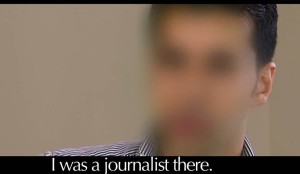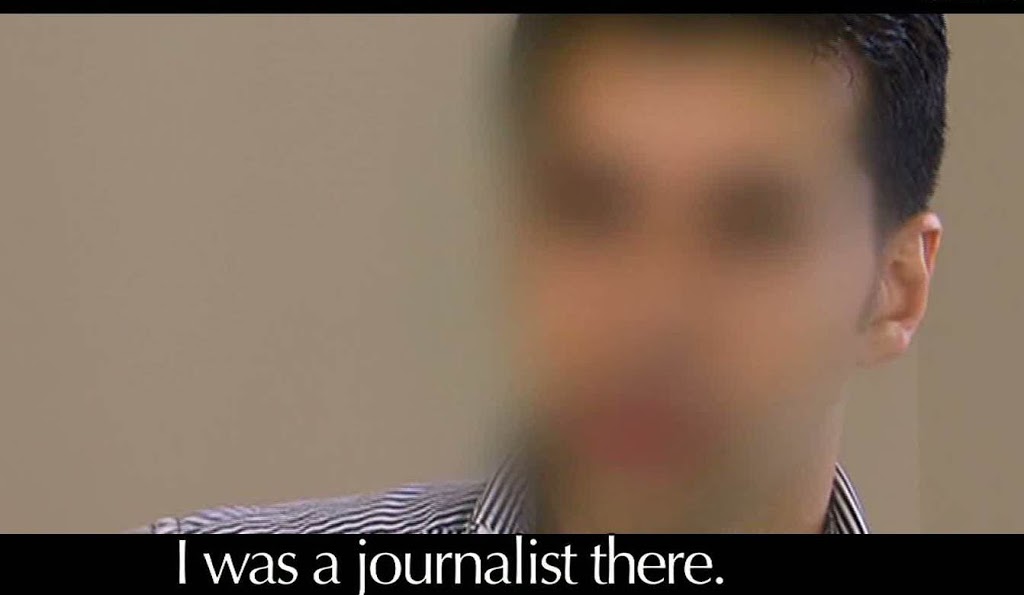 |
| File photo by UNHRC |
Frances Harrison
The war may be over in Sri Lanka, but it is still not safe for journalists there
I recently received a heartbreaking email saying a Sri Lankan journalist, his wife and nine year old child had spent the night with all their suitcases on a bench in a park in Paris. He’d been thrown out of the house where he was been staying, after losing his part time job washing dishes in a restaurant. It was difficult to organise emergency help because media organisations were shut over the weekend and his mobile phone was often switched off to preserve the credit.
The first thing you should know about this journalist is that he is Sinhalese – from the majority community in Sri Lanka, an island divided by decades of brutal ethnic war. Putting it very simply, the Sinhalese won the war in 2009, crushing a long running Tamil nationalist uprising. So it’s all the more surprising that a Sinhalese journalist should be in trouble.
Until recently it’s been the Tamil minority who’ve flooded out of Sri Lanka to seek asylum abroad. But in the last few years a steady trickle of Sinhalese journalists and activists have also fled. They were the more liberal and moderate minded, who opposed a military solution to crush Tamil nationalism – people, like the man in Paris, who could have had a very comfortable life if they’d chosen to toe the government line. Instead they paid a huge personal price for their integrity in speaking up for the “other” ethnic community. In some cases their own families even disown them.
Tamil journalists who escape abroad by no means have an easy time of it, but they do at least have established support networks in the diaspora. There are plenty of people to help them out if something goes wrong and they’re unlikely to end up on the streets. Not so the Sinhalese journalists who have absolutely no community to fall back on.
Psychologically the blow of exile is different too. The Tamil journalists have always known in the back of their minds that a time might come when they’d have to escape Sri Lanka. By contrast the Sinhalese journalists who are forced to leave are stunned to find they are no longer welcome in a place they always took for granted as their birthright.
One exiled Sinhalese journalist I know well was roundly attacked on Sri Lankan TV as a traitor earlier this year when the country was under pressure at the UN Human Rights Council over its record of war crimes during the 2009 culmination of the conflict. As a result of the news reports about him back home, all the other thirty Sinhalese families, except one, in his town in England refused to socialise with him any more. Because of being Sinhalese he’s also struggled to find a job in a petrol station because so many are owned by Tamils who wouldn’t hire him. He’s not just stateless but lacking any community.
In the past three years I’ve seen refugee photographers and editors I knew in Sri Lanka end up picking fruit in farms in Europe, working night shifts in factories, mopping floors and manning corner shops. They’ve struggled but have on occasion received extraordinary gestures of kindness from strangers. A fruit farm owner in Austria gave a Sinhalese photographer a new camera for his birthday when he heard his story. Staff in a library in Norway also clubbed together to buy a camera for a Tamil photographer, Lokeesan, who miraculously survived the brutal end to the civil war loosing all his possessions. In the case of the journalist in Paris it was a Nepali man who saved him initially – offering his family the use of his tiny room while he worked nightshifts.
That was until Tamil journalists came to his rescue, sending hard earned savings and arranging relatives in Paris to take him in to their homes on a temporary basis. That in itself is extraordinary. There are still many Sri Lankan Tamils abroad who would draw the line in helping Sinhalese, especially having them to stay. Reconciliation is talked about a lot but rarely practiced. There are decades of bitterness and bloodshed to overcome.
Among the Sri Lankan journalists I know in exile there’s a subtle transformation underway. Tamils and Sinhalese are gradually finding common cause, helping one another. The Tamil photographer, Lokeesan, only reached Norway because a total stranger, a Sinhalese journalist in exile, befriended him on Skype and helped him escape, filling in all the application forms in English for him. It was the first time the Lokeesan who grew up in the war zone had a Sinhalese friend; now they’re inseparable.
My Sinhalese journalist friend in England took a tortured Tamil journalist he didn’t know into his house, alongside his wife and children. The Tamil man’s kneecaps had been drilled and his genitals electrocuted; he woke everyone up in the asylum hostel every night with his screaming. My friend soothed him through the nightmares and then walked him back to the hostel every morning to sign back in. That they belonged on different sides of the ethnic divide did not matter to him – they were both fellow journalists. When I spoke to him last weekend he mentioned almost in passing that he had another Sinhalese reporter staying. That man arrived here four months ago after being attacked by government thugs and cut with knives all over his body, rendering his right hand permanently damaged. The war may be over in Sri Lanka but it’s still not safe for journalists there.
(The Rory Peck Trust, dedicated to the safety and welfare of freelancers and their families in crisis, has been helping support Sri Lankan journalists in exile.
Frances Harrison is a former BBC Correspondent in Sri Lanka, among other places, and her book of survivors’ stories from the end of the civil war in Sri Lanka ‘Still Counting the Dead’ is published by Portobello Books on 4 October 2012.)
